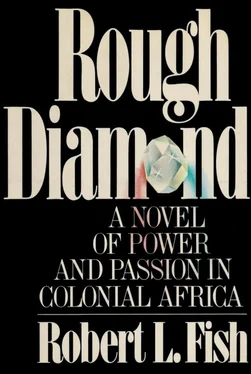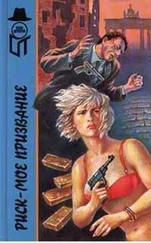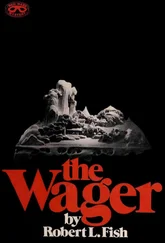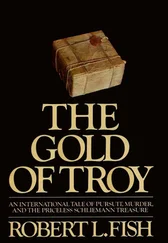Andries raised his bushy eyebrows. “Why together?”
Barney leaned a bit closer. “Andries, I was a stupid boy twenty years ago; I was an innocent. I thought the five quid for the trip-five quid you never even collected — included keep, as well. Grub. I know better today; I know what you did for me. In a way I owe you more than I can ever repay you.”
“You owe me nothing,” Andries said evenly. “You earned your keep on the trek. I was a fool to take on a load that heavy and try to take it over the mountains by myself. Without you I could never have made it. And the time you stopped those men from robbing the wagon. No, you owe me nothing. Actually,” he added dryly, “you owe me less than nothing. If I had had my way, I would have talked you out of staying in Kimberley. I would have talked you into coming back to Cape Town to work with me; I tried, if you remember. And today you’d be driving an ox wagon, like me.”
“And, except for Fay, probably as happy if not happier,” Barney said. “But I’m ready to work with you now,” he added with a grin, “but not as a driver. Maybe as a rancher. Come on! What d’you say?” He came to his feet as if the matter had already been decided. “Where’s your wagon?”
Andries hesitated; then he said, almost reluctantly, “At the goods shed next to the railway station.”
“And my driver is at the stable practically next to it,” Barney said, as if the proximity of the stables and the goods shed made his argument that much more sensible. The waitress brought over a wicker basket, placing it on the table. Barney thanked her and looked at Andries. The big man slowly came to his feet. “Fine!” Barney said. “Let’s go.”
“Wait. I haven’t paid—”
“I own this place,” Barney said firmly. “You don’t pay at my wagon any more than you let me pay at yours.”
And it had to be an omen, Barney thought as he led the way from the hotel, this running into Andries again after all the years, an omen that Johannesburg would prove as good to him as Kimberley had, especially when he rode into it with the big man at his side…
The crowd before the crude Stock Exchange in Simmonds Street in Johannesburg was quiet and glum; the prices constantly being changed on the board outside of the Exchange — a service for those who could not crowd into the small room inside — were being changed in a downward direction, as they had been for many months, and there was every indication this downward trend would not only continue but accelerate. For many of those watching, the changing figures meant little: what shares they had once owned had been lost long since, sold at any price for food. For these, as well as for many others watching, the entire exercise was simply one of entertainment; they were there to be in a crowd, to be with people, which had to be better than bring alone in a tent, or in a small room someplace with four bare walls and nothing to do but sit and stare, wondering how to meet the rent.
Barney and Andries, weary from the long and tiresome trip — far more tiresome, oddly enough, than walking beside a slow-moving ox wagon — at the moment wanted nothing more than to find a decent hotel and rest. But first, Barney said, they should find the office Solly Loeb had rented in Fox Street, wherever that was, and advise him of their arrival. They had stopped in the Market Square to ask directions, leaving the outriders there, and now they turned from Market Street into Simmonds, crossing Commissioner, and then pulled up, frowning at the sight of chains that blocked the road, and the crowd that was gathered behind the chains, wondering what had caused the congregation. But the board outside the building and the prices being chalked on it explained everything, at least to Barney. He was about to indicate to Andries to turn and take another street when somebody in the crowd recognized him.
“Hey! It’s Barney! Barney Barnato!”
The crowd turned their attention to him; he was, after all, the richest man in Africa while at the moment there were, among them, undoubtedly some of the poorest. They moved from the relatively unexciting listing of prices to crowd against the chains behind which, in a very ornate trap albeit covered with the dust of the trip, was the far more glamorous and enviable Barney Barnato. Many had never seen him, but everyone there had certainly heard of him. Barney, never too tired to take a bow before an audience, smiled and stood up, resting one hand on Andries’ shoulder for support. He looked down at the faces surrounding the trap, searching for a familiar face but unable to find one.
“Hey, Barney, when did y’get back from Merry Ol’ England?”
“Just a few weeks ago,” Barney said, and then added, from lack of anything else to say, “How’s the market?”
This was greeted by a bitter laugh from the crowd. “Don’t ask!” someone shouted.
Then someone else called out. “Hey, Barney, want to buy a gold mine?”
This brought an even louder laugh from the crowd.
“Hey, Barney, how about a choice piece of ground? Make a fine site for a block of office buildings. You can have it cheap. It’s right in the heart of Jo’burg. I’m serious.”
“That’s if you can find anyone to rent them afterwards!” someone else shouted.
“Hey, Barney, you used to pick and shovel, didn’t you? Well, I got me a fine pick and shovel, both. Hardly used. Lately, that is—” That brought another laugh.
Barney held up a hand for quiet.
“You want to know what I want to buy?” he called out when relative silence had fallen. “Well, I’ll tell you — everything!” He held up his hand again to settle the buzz that had broken out from the crowd. “Hold it, boys! I’m serious. Anyone who has anything to sell, come and see me tomorrow. Our offices are at Forty-five Fox Street, if anyone can tell us where that is—”
“Just around the corner,” someone said, and pointed.
“Thanks,” Barney said, and sat down. Andries started to turn the team from the chains, but with a shout the men in the crowd loosened the chains and dropped them at both ends of the block that had been set aside before the Exchange, and then shoved back to give Andries room to pass. The trap moved around the corner, leaving a stunned crowd.
“You think he’s serious?”
“Maybe he thinks he is, but he don’t know Jo’burg,” someone else said.
“He may know diamonds, but he don’t know shit from shaving soap about gold.”
“He may be the richest man in Africa right this minute, but if he buys everything in this town somebody’s got for sale, like he says, then he’s going to be the poorest man in Africa before you can say Stephanus Johannes Paulus Kruger—”
“That’s his worry, the way I see it. It don’t take no skin off’n a man’s behind just to drop in that office of his tomorrow and see if he really meant what he said.”
“Why, you got something to sell, Joe?”
“I’m down to me virtue, is all—”
The crowd slowly drifted back to the chalkboard and the man still scribbling on it.
Solly Loeb looked at the crowd that filled the outer office of their new rooms and wound itself down the stairs to the street below with what he considered justified resentment. If he was supposed to be in charge of the Johannesburg office, if he was supposed to make the decisions, if he was supposed to make the recommendations as to what to buy — which at this moment in time positively should be nothing at all in this depressed town — then what was Barney doing coming up here and, for all intents and purposes, taking over? And in so doing making a fool of himself, and by association, a fool of Solly Loeb as well? Already, in one short month, Solly was almost ashamed to show himself at the Rand Club, sure the other members were laughing at him behind those suave and supposedly sincere smiles. As he saw one more indigent petitioner — for that was how Solly saw them — leave Barney’s inner office and as he resignedly waved another one to enter, Solly tried to calculate how much money Barney Barnato had already thrown down the drain, but the figure he came up with was too staggering even to be contemplated without making him sick. If it kept up like this, the Barnato Investment Company would go stony, and with it the value of the shares Solly held in it.
Читать дальше










